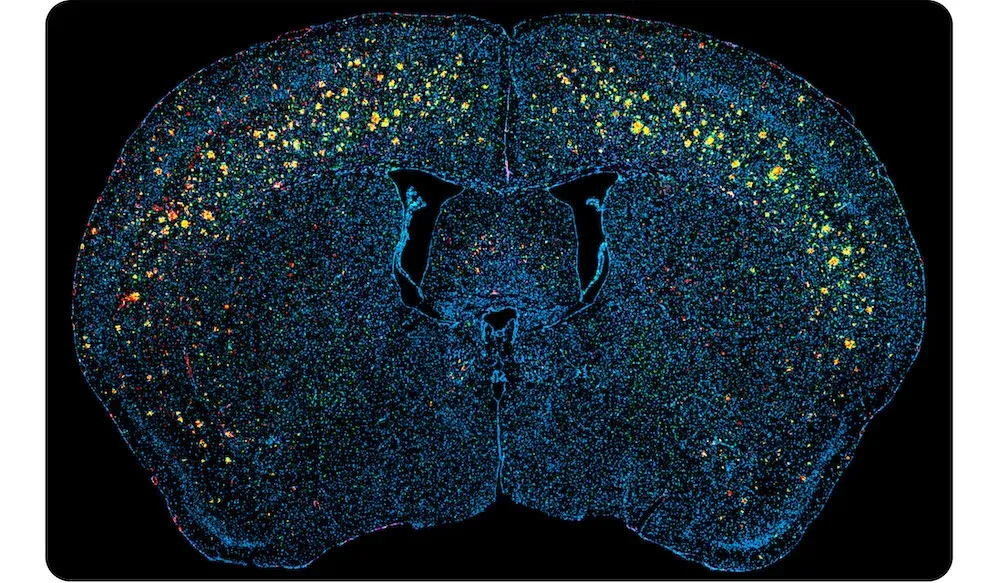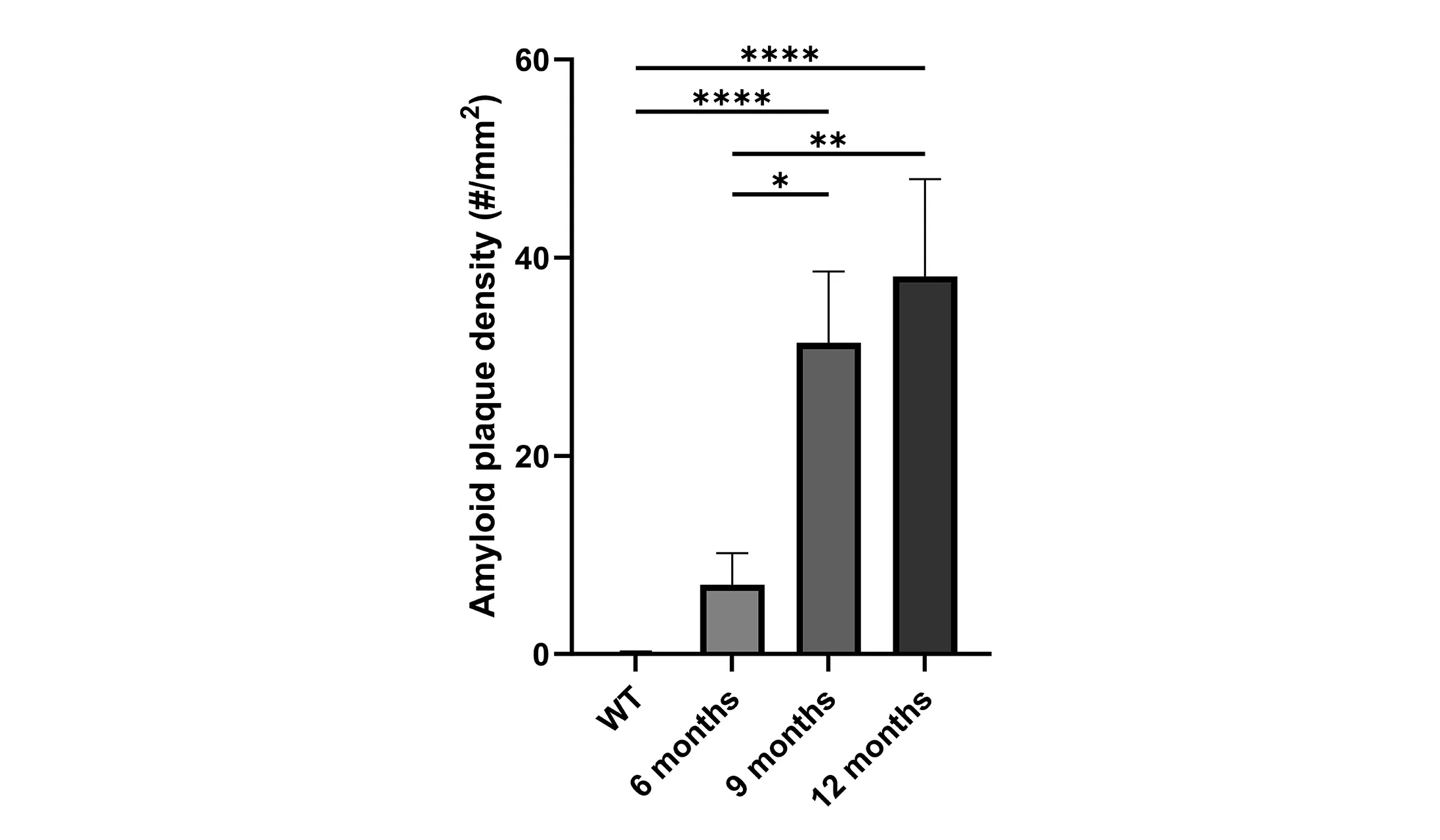Amyloid Model Overview
β-amyloid pathology and cognitive impairment are hallmarks of sporadic and familial Alzheimer's disease. While multiple APP transgenic mouse models and APP knock-in mice models of Alzheimer's disease exist, which are typically based on overexpression of APP with one or more gene mutations, they each have their respective strengths and weaknesses.
At Biospective, we have validated the ARTE10 (APP/PS1) transgenic mouse model of Alzheimer's disease. Significant advantages of these transgenic mice include:
- Beta-amyloid (Aβ) plaque deposition beginning around 3 months-of-age, with a time-dependent increase in burden and extent
- Fibrillar extracellular and intracellular beta-amyloid pathology
- Parenchymal and vascular Aβ deposits
- Robust astrogliosis and microgliosis (including activated microglia)
- Brain and spinal cord pathology
The mouse model time course is predictable and the measures are highly reproducible.
These mice are readily available at Biospective at ages appropriate for preclinical therapeutic studies.
Amyloid Transgenic Model Generation
ARTE10 [C57BL/6NTac.CBA-Tg(Thy1-PSEN1*M146V,-APP*Swe)10Arte] (APP-PS1) homozygous mice are generated on a C57BL/6NTac background. ARTE10 is a transgenic (Tg) line with two co-integrated constructs: Thy-1 promoter specific expression the transgene coding for the 695 amino acid isoform that harbors the Swedish mutation of human amyloid precursor protein (APPsw), as well as human Presenilin 1 (PS1) carrying the M146V mutation (PS1M146V). This transgenic model expresses high concentrations of human amyloid-beta (aβ) protein and aβ peptides via proteolytic processing (e.g. via β-secretases and γ-secretases), and develops human Alzheimer's disease-like amyloid pathology due to genetic mutations within the human amyloid precursor protein (APP) and PSEN1 genes. This aβ generation (via amyloidogenic processing of APP) model has been used for non-invasive imaging of amyloid-β plaques using Amyloid PET imaging tracers.
Our Validated Amyloid Mouse Model Measures
- Body weight
- Neurofilament Light in plasma & CSF
- Immunohistochemistry & multiplex immunofluorescence
- Spatial biology analysis (Read More in our Presentation - β-amyloid & the inflammatory microenvironment in an APP/PS1 mouse model of Alzheimer's disease)

Multiplex immunofluorescence staining (β-amyloid, Iba-1, GFAP) from a 9 month-old APP/PS1 mouse.

Time-dependent β-amyloid plaque formation in the frontal cortex.
Learn more about our characterization of this model, our validated measures, and our Preclinical Neuroscience CRO services.